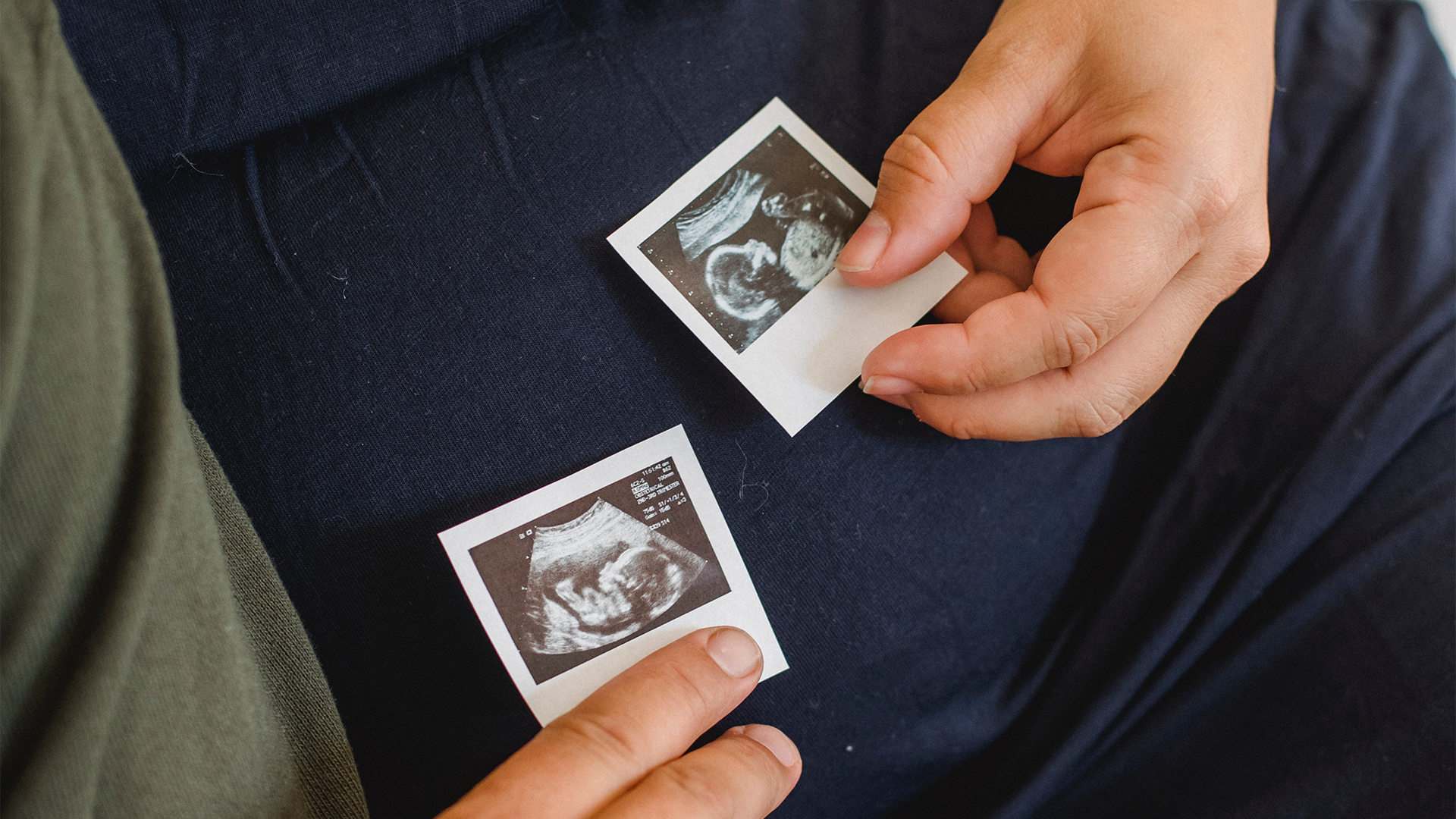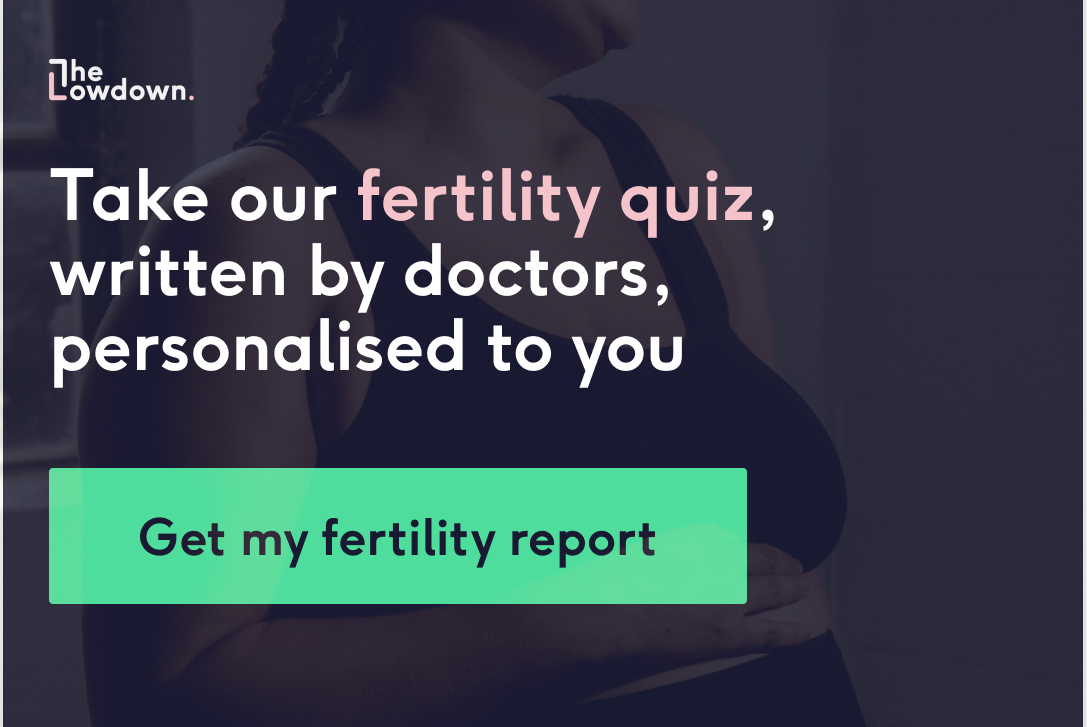
What’s the lowdown?
- It’s normal to take anywhere between 1 to 12 months to get pregnant when trying to conceive
- There’s no way to predict which couples will get pregnant within the 1st month and who will take longer
- It may take longer to get pregnant if you have medical conditions that affect fertility or are older, but there are ways to help!
✅ If you think this blog sounds interesting, make sure to check out our newsletter for more:
Many people spend years trying to prevent pregnancy through practicing safe sex and using contraception. When you feel ready to start a family, it’s natural to want to know how to get pregnant fast. Let’s get into it.
How do I get pregnant?
Let’s start with the basics of the menstrual cycle and how to conceive. Usually, a woman (or anyone with female reproductive organs) will ovulate (release an egg) around 14 days before their period. If you have penetrative (penis in vagina) sex and ejaculation happens inside the vagina, this releases sperm into the reproductive tract.
If the sperm and egg meet, the sperm can fertilize the egg which then implants into the womb and ta-da! A pregnancy. You can expect to see a positive pregnancy test around 2 weeks later when the pregnancy hormone levels rise.
When should you start trying to get pregnant?
Truthfully, there is no ‘best’ time to get pregnant and the choice to start trying to conceive is a personal decision. You can start trying to get pregnant whenever you feel ready.
It’s a good idea to plan in advance, as NHS guidelines suggest taking preconception vitamins (most importantly folic acid) for 3 months before getting pregnant. However, if you fall pregnant before these 3 months, don’t worry!
You can also start trying at any point during your menstrual cycle, and you don’t need to wait for a period to get going.
The only useful thing about waiting for your period is to know the approximate weeks of your pregnancy in the future.
How do I get pregnant faster?
There isn’t a magic formula to get pregnant really quickly, but we can offer some tips to make sure you and your partner are doing everything you can to help promote fertility and a healthy pregnancy. These include:
- Have unprotected sex 2 to 3 times each week
- Aim for a healthy, balanced diet and get active
- Try to maintain a healthy weight but don’t over-exercise or calorie restrict which puts stress on your body
- Avoid alcohol, drugs and stop smoking
Use our fertility quiz, written by doctors, to understand more about your fertility.
Will contraception make it harder to get pregnant?
If you have been using hormonal contraception, it’s a common worry that it can reduce your fertility. Please be reassured that the majority of hormonal contraception has NO impact on your fertility.
In studies, 98% of users of the combined pill have their normal cycle return and start releasing eggs within 3 months of stopping. The contraceptive injection is the only form of hormonal contraception which can temporarily delay the return of fertility for up to 12 months for some people. So, if you’re planning a pregnancy in the near future, you may want to avoid the injection.
How long does it take to get pregnant on average?
We would LOVE to predict for each couple how long it will take to get pregnant. However, in reality there are too many factors that influence conception, so it’s very difficult to predict.
Using The Lowdown’s trying to conceive tool can give you a good idea of factors that might influence your ability to conceive and ideas to improve your fertility.
1 in 3 couples will fall pregnant within the 1st month of trying.[1] This can be a surprise for those who expect it to take longer, and also frustrating for couples who have been trying for a while when everyone around them seems to instantly get pregnant.
For the majority of couples, it won’t be the first month, but 4 in 5 couples will get pregnant within 1 year, and 9 in 10 couples will be pregnant within 2 years.[1]
So really it’s normal for pregnancy to take anywhere between 1 month and 2 years. Knowing this can help ease any pressure you put yourselves under.
What is the average time to get pregnant by age?
We know that natural fertility starts to reduce from your mid 30s.
This table shows how many couples will conceive within 12 months of trying at each age. These statistics are based on couples who have unprotected sex 2-3 times each week for 12 months.[5]
Age | Percentage of women who will conceive within 12 months |
30 | 70% |
35 | 60% |
40 | 40% |
Why am I not getting pregnant?
Health problems such as polycystic ovary syndrome (PCOS), endometriosis and other medical conditions may increase the time it takes for some couples to get pregnant. This isn’t the case for everyone and it’s important to start trying with a positive mindset.
If you have a medical condition, such as those found in our trying to conceive tool, speak to your GP if you haven’t fallen pregnant within 6 months. This doesn’t mean you won’t fall pregnant naturally, it just allows you to start the referral process if you need help. So keep trying!
The vaginal microbiome is your unique composition of healthy “good” bacteria which help to keep the vagina’s environment stable and at an acidic pH. If there is an imbalance of “good” and “bad” bacteria this is called dysbiosis. Imbalance in your bacteria can not only cause infections like thrush and BV, but also has a role in getting pregnant. ScreenMe is the only UK-based test that can screen for every single bacteria or yeast within your vaginal microbiome.
When should I speak to a doctor?
If you have been trying to conceive for 12 months and have not fallen pregnant, your GP is the first place to start. Your GP can do initial tests including blood tests, an STI screen and an up to date cervical smear (if needed) and then refer you to a fertility specialist.
However, you may be able to have tests and get referred earlier if:
- you are over 36
- you have PCOS or endometriosis
- you or your partner have other medical conditions which can affect pregnancy
- or if you suspect you have PCOS, endometriosis or a condition which hasn’t been diagnosed yet
It’s a good idea to keep a log of when you started to conceive, your menstrual cycle and how often you are having unprotected sex to discuss this with your GP.
What can I do to get pregnant?
If you have been trying to conceive for a long time and have not fallen pregnant, fertility specialists can help. First, you will need to undergo tests to see if there is a reason you have found it difficult to conceive.
Then, different treatments can be offered depending on the cause. These may include:
- Medications to encourage you to release an egg each month
- Surgical procedures, for example, to treat endometriosis, PCOS, fibroids or blockage of either the male or female reproductive systems
- Assisted conception which includes intra-uterine insemination (IUI) or in-vitro fertilization (IVF)
How can The Lowdown help?
At The Lowdown, we have a fantastic team of women’s health experts who can discuss any concerns you may have about coming off contraception, your menstrual cycle, PCOS or endometriosis.
If you would like to think about optimising your fertility or have worries about trying to conceive, our fertility expert is also available to help.
The Lowdown can also connect you to other women and couples similar to yourself to share your experiences on our trying to conceive platform. We know that the power of community is so important through these times of life, and we want to be there to help.
Tags
- Tommy’s Charity
- NHS. How long it takes to get pregnant.
- NHS. Infertility.
- Faculty of Sexual and Reproductive Health. Combined Hormonal Contraception.
Leridon H. Can assisted reproductive technology compensate for the natural decline in fertility with age? A model assessment. Human Reproduction 2004;19(7):1548











